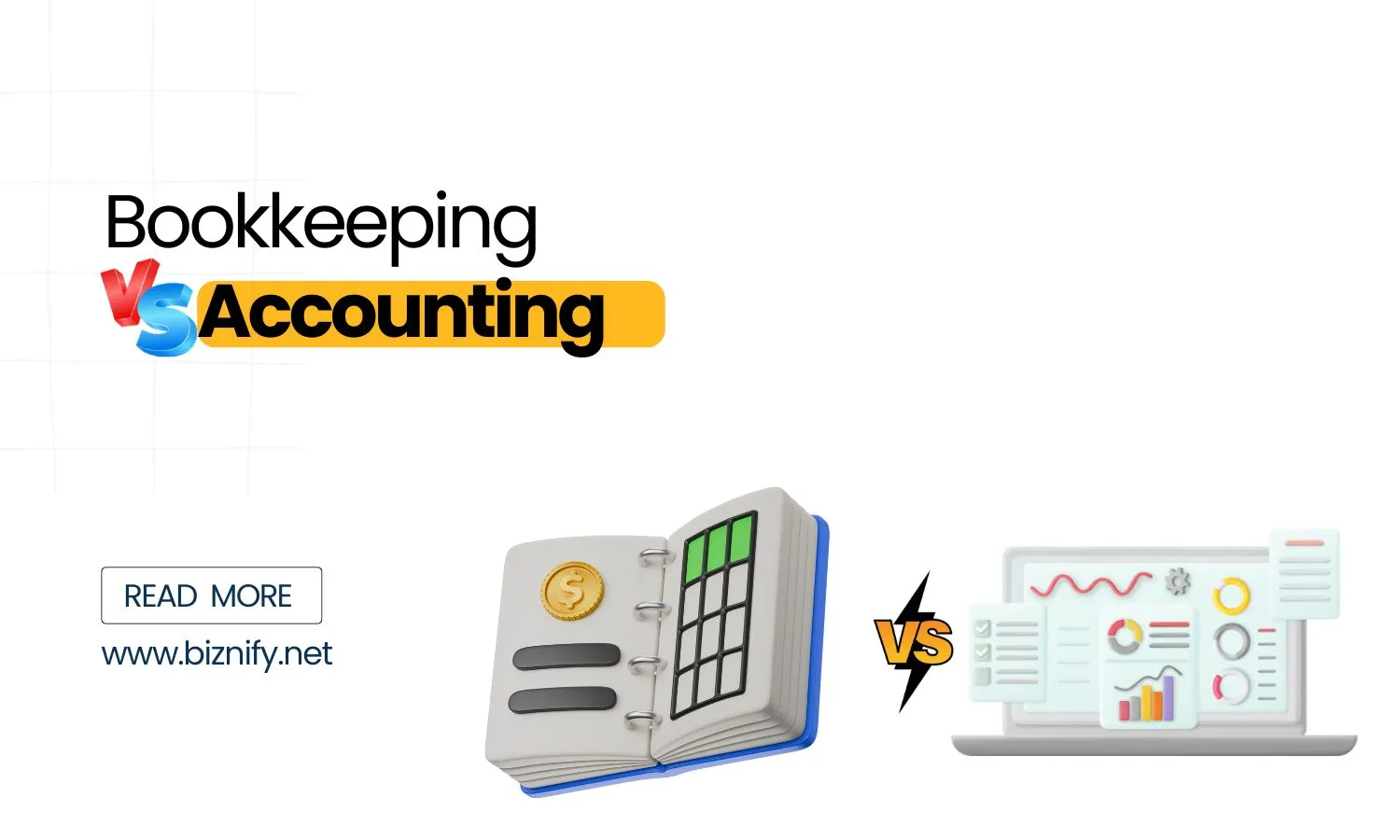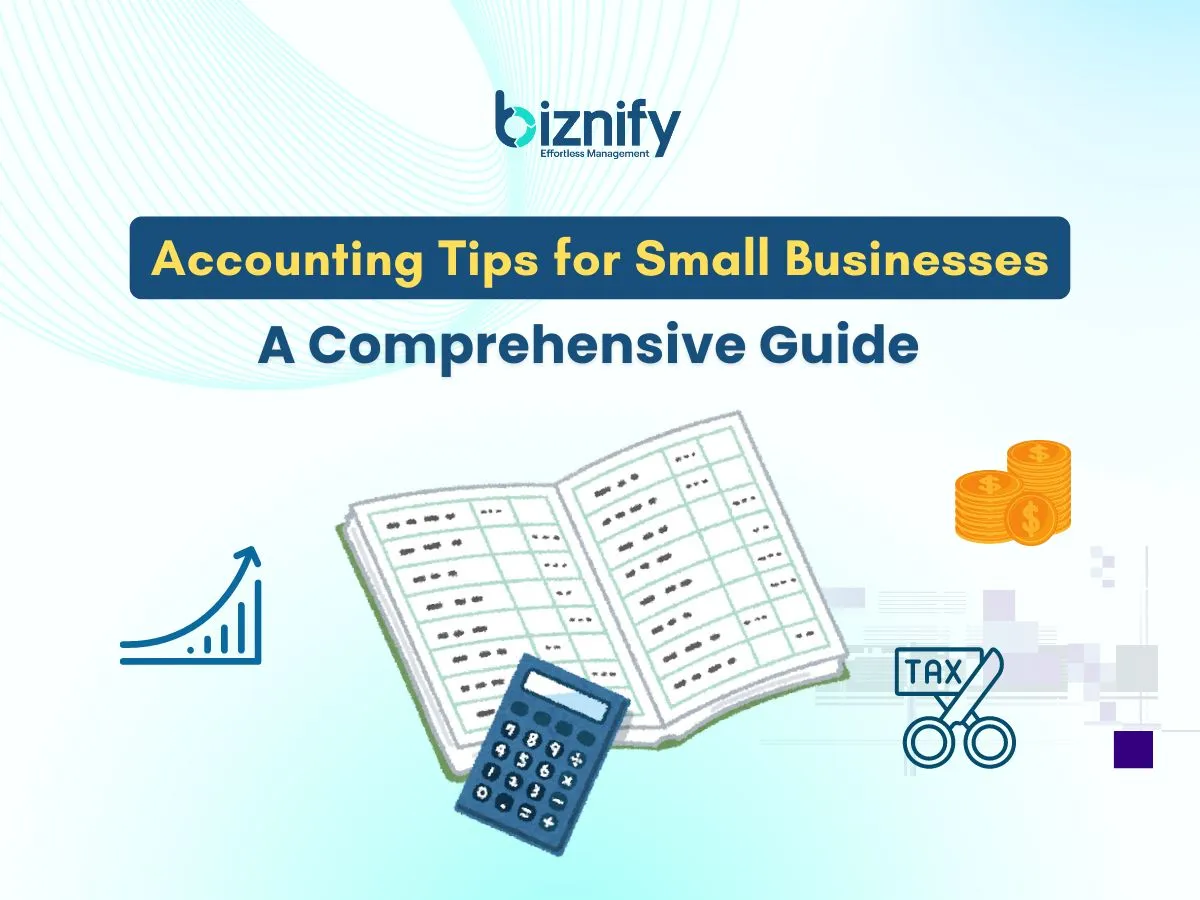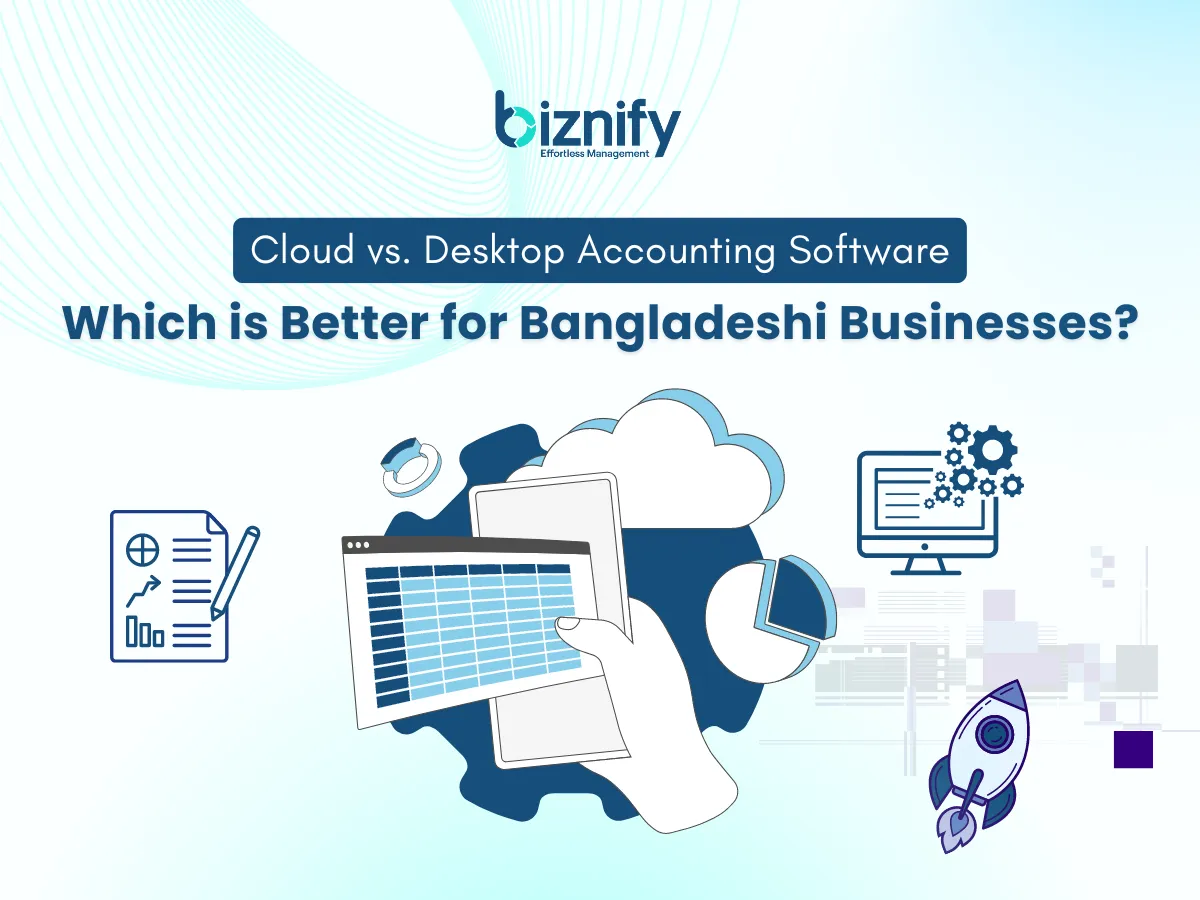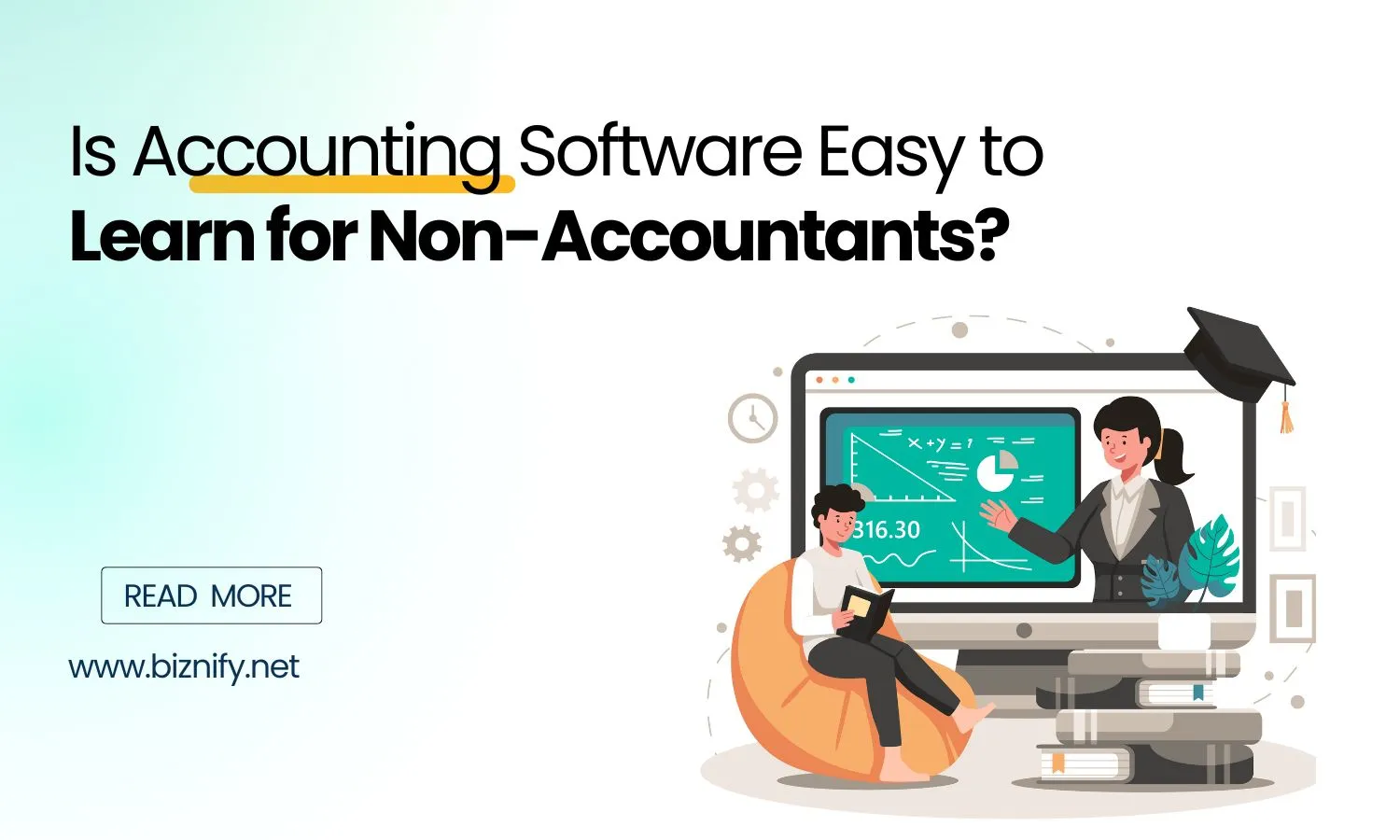
Bookkeeping records daily business transactions, while accounting analyzes those records to guide decisions. That is the core difference, and understanding it helps Bangladeshi businesses choose the right financial setup.
Bookkeeping focuses on accuracy and consistency. It tracks sales, expenses, payments, and cash flow regularly. Accounting uses that data to prepare reports, assess performance, and support compliance and planning.
When these functions are managed through spreadsheets or separate tools, gaps appear. Data becomes inconsistent, reports get delayed, and decisions rely on incomplete information. Modern accounting software solves this by connecting both functions in one system.
Platforms like Biznify support day-to-day bookkeeping and structured accounting reports in a single workflow. Knowing how bookkeeping and accounting differ helps businesses set up their finances correctly and scale with clarity.
Bookkeeping records and organizes daily financial transactions. Its purpose is to keep business data accurate, complete, and ready for reporting. Every accounting process depends on clean bookkeeping data.
Bookkeeping covers routine financial work such as:
Recording sales and expenses
Tracking cash and bank transactions
Managing invoices and bill payments
Updating records daily or weekly
These activities ensure that financial data stays current and reliable.
Accounting analyzes financial records to measure performance and support decisions. It uses bookkeeping data to show where a business stands financially and what actions are needed next.
Accounting typically includes:
Preparing profit and loss statements
Creating balance sheets and cash flow reports
Reviewing costs, revenue, and margins
Supporting tax filing and compliance
Evaluating business performance over time
These activities are done monthly, quarterly, or annually, depending on the business.
Accounting depends on accurate records. If bookkeeping data is incomplete or inconsistent, accounting reports become unreliable. This leads to wrong insights, delayed decisions, and compliance risks.
For Bangladeshi businesses, proper accounting helps owners understand profitability, control expenses, and plan growth. When supported by structured software systems, accounting becomes faster, clearer, and easier to manage.
Many small businesses in Bangladesh rely on notebooks or spreadsheets for bookkeeping. This often leads to missing entries, mismatched balances, and poor cash visibility. Without proper bookkeeping, accounting reports become unreliable and business decisions turn risky.
Strong bookkeeping creates the foundation for accurate accounting, tax preparation, and long-term financial planning.
Bookkeeping and accounting work together but serve different purposes. One records financial activity, while the other analyzes that information to support decisions. Understanding this difference helps businesses set clearer processes and choose the right tools.
Bookkeeping records daily activities. Accounting analyzes outcomes. Bookkeeping tracks what happens each day. Accounting explains what those numbers mean for the business.
Bookkeeping is done regularly, often daily or weekly. Accounting follows a set cycle, usually monthly, quarterly, or yearly. One keeps data updated. The other reviews performance over time.
Bookkeeping provides transaction details like expenses and balances. Accounting turns those details into reports and insights for decision-making and compliance.
Bookkeeping keeps operations organized. Accounting supports planning and growth decisions. Businesses need both, but the balance shifts as they scale.
| Aspect | Bookkeeping | Accounting |
|---|---|---|
| Primary role | Record transactions | Analyze financial data |
| Time focus | Day to day | Period based |
| Output | Financial records | Reports and insights |
| Business value | Accuracy and control | Decisions and planning |
Bookkeeping and accounting are not separate systems. Accounting depends on accurate bookkeeping to work properly. When daily records are complete and consistent, accounting reports become reliable and useful.
Bookkeeping captures each transaction first. Accounting then uses that data to prepare reports, evaluate performance, and support decisions. If bookkeeping is weak, accounting insights lose accuracy and value.
In a modern business workflow, the process is simple: transactions are recorded, records are organized, reports are generated, and decisions are made. Using connected accounting software helps ensure this flow stays clean and uninterrupted.
Every business does not need the same level of financial management from day one. The need for bookkeeping and accounting changes as a business grows. Understanding this helps avoid overcomplicating systems early or under-managing finances later.
New and small businesses need strong bookkeeping first. Daily transaction tracking, expense control, and cash visibility are the priority. Basic accounting reports are enough at this stage to understand income and expenses.
As businesses grow, accounting becomes more important. Regular bookkeeping remains essential, but monthly reporting, performance analysis, and planning start to matter more. At this stage, businesses benefit most from using a system that supports both functions together.
For daily transaction management and keeping the books organized, Hire a bookkeeper.
For strategic financial advice, tax planning, and regulatory compliance, Hire an accountant.
For small businesses: You may need both a bookkeeper for regular record-keeping and an accountant for higher-level analysis and compliance.
Manual bookkeeping and accounting create gaps as a business grows. Spreadsheets, notebooks, and disconnected tools make it hard to maintain accuracy, track performance, and prepare reports on time. Errors increase and financial visibility drops.
Accounting software solves this by automating routine bookkeeping and structuring accounting processes. Transactions stay organized, reports generate faster, and financial data remains consistent across the business.
Modern businesses need one system that handles daily records and higher-level reporting together. Biznify is built to support both functions without complexity.
Biznify helps businesses record and manage daily transactions efficiently. Income, expenses, invoices, and payments stay organized in one place, reducing manual effort and errors.
Biznify converts bookkeeping data into clear financial reports. Businesses can review profit and loss, track performance, and monitor financial health using accurate, up-to-date information.
Biznify is designed around local business workflows. It supports small teams, growing companies, and multi-branch operations. Businesses can start with basic bookkeeping and scale into structured accounting without changing systems.
Bookkeeping and accounting serve different purposes, but they work best together. Bookkeeping keeps financial data accurate. Accounting turns that data into insights and decisions.
Using the right accounting software helps businesses manage both functions in one system. With tools like Biznify, Bangladeshi businesses can maintain clarity, stay compliant, and grow with confidence.
.webp)







Just exploring ERP or unsure which modules you need? The Biznify team’s here with straight answers.